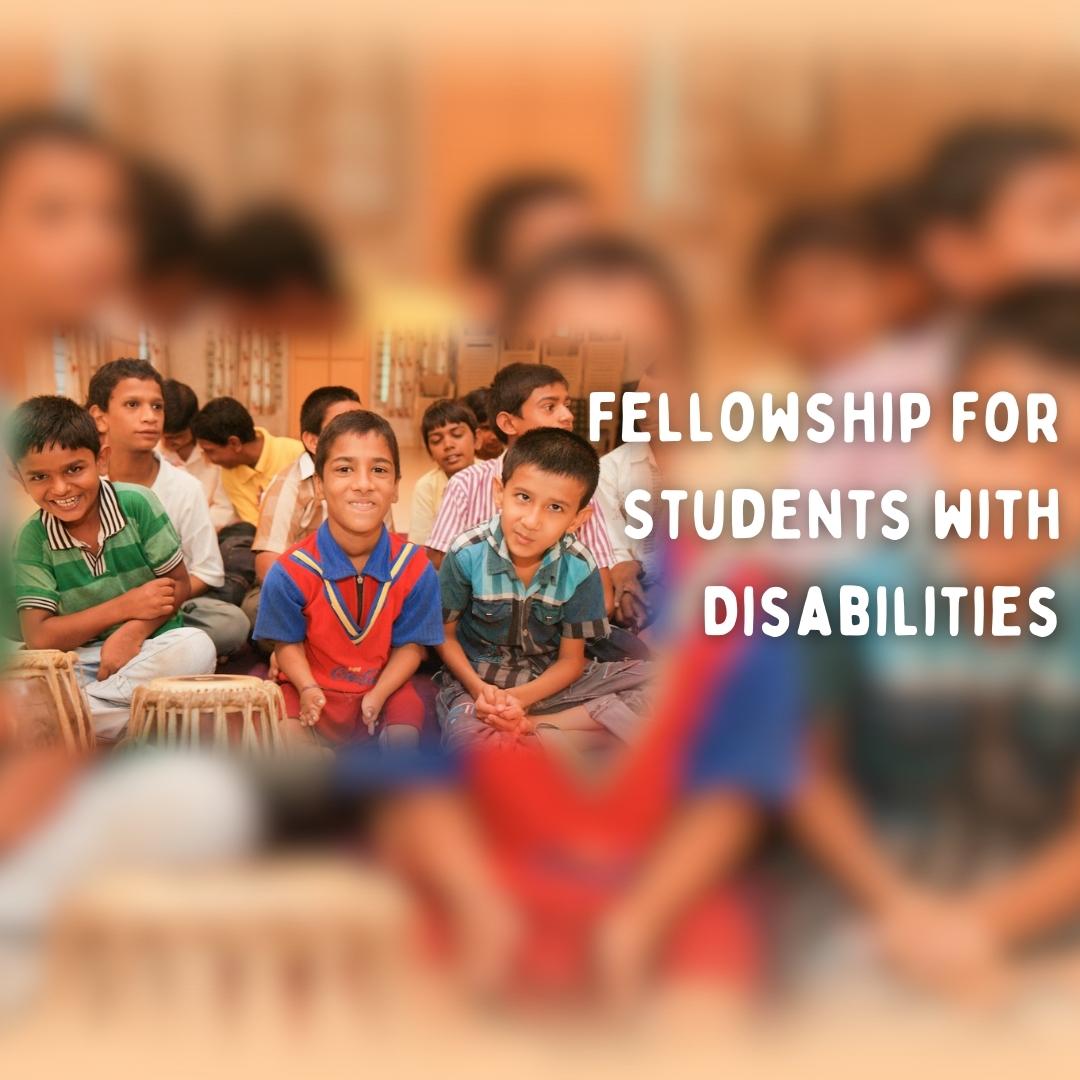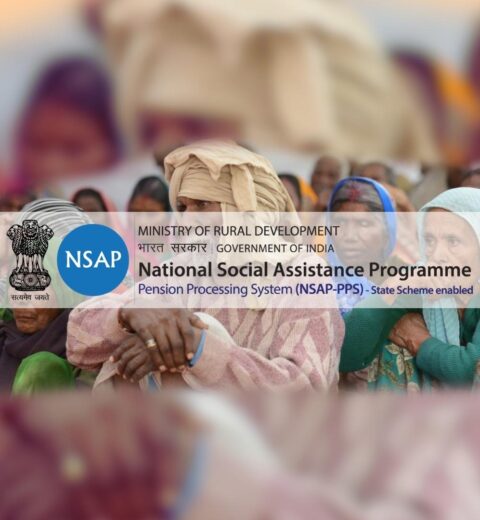Introduction:
In a pioneering effort to foster inclusivity and empower students facing physical challenges, the Central Government of India has instituted the Rajiv Gandhi National Fellowship for Students with Disabilities. Recognized as the Rajiv Gandhi Scholarship Yojana, this central government scheme for disabilities stands as a testament to the commitment towards providing equal educational opportunities. Tailored specifically for students with disabilities, the fellowship is a beacon of support, offering scholarships to disabled students pursuing higher education. This blog provides a comprehensive exploration of the Rajiv Gandhi National Fellowship, delving into its historical evolution, key features, application processes, and the transformative impact it has on the lives of the beneficiaries. Through this initiative, the government aims to break down barriers, ensuring that students with disabilities can access quality education and contribute meaningfully to society. In a laudable stride towards creating an inclusive and empowering educational landscape, the Central Government of India has instituted the Rajiv Gandhi National Fellowship for Students with Disabilities. This pioneering scholarship program, often referred to as the Rajiv Gandhi Scholarship Yojana, stands as a testament to the government’s commitment to providing equal opportunities for academic pursuits among students with disabilities. This comprehensive blog delves into the intricacies of this central government scheme for disabilities, shedding light on its significance, application process, eligibility criteria, and the transformative impact it has on the lives of the beneficiaries.
Historical Evolution:
The historical evolution of the Rajiv Gandhi National Fellowship for Students with Disabilities traces a transformative journey within the landscape of educational inclusivity in India. Stemming from the central government’s commitment to the welfare and empowerment of students with disabilities, the inception of this fellowship, also recognized as the Rajiv Gandhi Scholarship Yojana, reflects a progressive shift in policy-making to address the unique challenges faced by this demographic. Over the years, the government has recognized the significance of providing financial support and opportunities for higher education to students with disabilities, marking a pivotal chapter in the central government scheme for disabilities. The historical context of this fellowship highlights a strategic response to societal needs, aligning with constitutional principles to ensure that students with disabilities have equitable access to education, laying the foundation for a more inclusive and empowering educational landscape. The Rajiv Gandhi National Fellowship for Students with Disabilities has its roots in the government’s historical commitment to the welfare and empowerment of individuals facing physical challenges. The evolution of this scheme reflects a progressive shift in policy-making, aligning with the constitutional principles of equality and inclusivity. Over the years, the government has recognized the unique obstacles encountered by students with disabilities in pursuing higher education, culminating in the establishment of the Rajiv Gandhi Scholarship Yojana. Understanding the historical context of this fellowship is integral to appreciating the government’s steadfast dedication to fostering an inclusive educational environment.
Key Features of the Fellowship:
The Rajiv Gandhi National Fellowship for Students with Disabilities encompasses key features that distinguish it as a crucial element within the central government scheme for disabilities. Tailored to empower students with disabilities, the fellowship stands as a beacon of support by offering scholarships to disabled students pursuing higher education. The program’s key features include comprehensive financial assistance, covering tuition fees, accommodation, and additional allowances. Eligible courses span various academic disciplines, allowing students with disabilities to pursue their chosen fields. The duration of support ensures sustained assistance throughout the course of study. By providing a holistic approach to financial aid, the Rajiv Gandhi Scholarship Yojana aims to remove barriers, facilitating inclusive education for students with disabilities and fostering a more accessible academic environment. Central to the Rajiv Gandhi National Fellowship is its commitment to providing financial support and opportunities for higher education to students with disabilities. This section of the blog explores the key features of the fellowship, including the scope of financial assistance, eligible courses, and the duration of support. The government’s emphasis on ensuring that students with disabilities have access to quality education is underscored through the various components of the fellowship, making it a pivotal aspect of the central government’s scheme for disabilities.
Application Process and Eligibility Criteria:
Navigating the application process and understanding the eligibility criteria for the Rajiv Gandhi National Fellowship for Students with Disabilities is integral to ensuring that deserving candidates can avail themselves of this central government scheme for disabilities. To apply for the Rajiv Gandhi Scholarship Yojana, eligible students with disabilities need to submit a detailed application form along with necessary documents, including proof of disability, academic records, and income certificates. The eligibility criteria typically involve a minimum disability percentage, Indian citizenship, and enrollment in a recognized postgraduate course. Understanding these requirements and adhering to the application timelines is crucial for prospective beneficiaries. The government’s intent is to streamline the process, making it accessible for students with disabilities to apply for and receive scholarships, thereby empowering them to pursue higher education without financial constraints. Navigating the application process and understanding the eligibility criteria is often a crucial aspect for prospective applicants. This section provides an in-depth guide to the application procedures, required documents, and the specific eligibility criteria for availing the Rajiv Gandhi Scholarship Yojana. The aim is to demystify the process, ensuring that students with disabilities and their families have the necessary information to pursue this invaluable opportunity for higher education.
Impact on the Lives of Beneficiaries:
The Rajiv Gandhi National Fellowship for Students with Disabilities has left an indelible impact on the lives of its beneficiaries, affirming its role as a cornerstone within the central government scheme for disabilities. Through offering scholarships to disabled students pursuing higher education, the fellowship has become a catalyst for transformative change, providing financial support that extends beyond alleviating economic constraints. This initiative, also recognized as the Rajiv Gandhi Scholarship Yojana, empowers students with disabilities to break through societal barriers and pursue academic excellence. The tangible benefits of the fellowship resonate in the stories of countless individuals, fostering a sense of self-reliance, confidence, and accomplishment. By facilitating inclusive education, the Rajiv Gandhi National Fellowship not only enhances academic pursuits but also plays a pivotal role in shaping a more equitable and accessible future for students with disabilities, illustrating the far-reaching impact of targeted government interventions in the realm of education. Examining the impact of the Rajiv Gandhi National Fellowship delves into the personal stories and testimonials of the beneficiaries. Real-life narratives underscore how this scholarship has transformed the lives of students with disabilities, providing not only financial support but also fostering a sense of empowerment, self-reliance, and the pursuit of academic excellence. Through the lens of personal experiences, this section aims to illustrate the tangible benefits and long-lasting impact of the fellowship on the lives of its recipients.
Challenges and Solutions:
While the Rajiv Gandhi National Fellowship for Students with Disabilities has been instrumental in promoting inclusive education, certain challenges persist within the framework of this central government scheme for disabilities, also known as the Rajiv Gandhi Scholarship Yojana. Challenges may include limited awareness among potential beneficiaries, bureaucratic hurdles in the application process, and regional disparities in accessibility. To address these concerns, a concerted effort is required to intensify awareness campaigns, ensuring that students with disabilities are well-informed about the fellowship. Streamlining administrative processes and enhancing collaboration between government bodies, educational institutions, and disability advocacy groups can contribute to overcoming bureaucratic challenges. Additionally, regional disparities can be mitigated through targeted outreach programs and ensuring uniform accessibility across the nation. By actively addressing these challenges, the government can optimize the impact of the Rajiv Gandhi National Fellowship, ensuring that it continues to be an effective means of support for students with disabilities pursuing higher education. The Rajiv Gandhi National Fellowship has undoubtedly made significant strides, challenges may exist in its implementation and accessibility. This section addresses potential hurdles faced by applicants and suggests solutions to enhance the efficiency and inclusivity of the fellowship. By actively identifying and overcoming challenges, the government can ensure that the Rajiv Gandhi Scholarship Yojana continues to be a beacon of support for students with disabilities.
Conclusion:
In conclusion, the Rajiv Gandhi National Fellowship for Students with Disabilities stands as a beacon of empowerment within the central government scheme for disabilities, commonly referred to as the Rajiv Gandhi Scholarship Yojana. By providing scholarships to disabled students pursuing higher education, this initiative has not only alleviated financial constraints but has also become a transformative force in the lives of its beneficiaries. The impact is profound, fostering inclusivity, self-reliance, and academic excellence among students with disabilities. The program’s comprehensive approach, coupled with its commitment to breaking down societal barriers, contributes significantly to shaping a more equitable and accessible future. As the government continues to address challenges and refine the fellowship, the Rajiv Gandhi National Fellowship remains a testament to the transformative power of education in empowering individuals with disabilities and fostering a society that values diversity and inclusivity. The Rajiv Gandhi National Fellowship for Students with Disabilities stands as a beacon of hope and empowerment, reflecting the government’s unwavering commitment to inclusive education. Through its multifaceted approach, this central government scheme for disabilities not only provides financial assistance but also creates a platform for students with disabilities to pursue their academic dreams. The blog encapsulates the historical context, key features, application process, and impact of the fellowship, emphasizing the transformative role it plays in fostering a more inclusive and accessible educational landscape for students with disabilities.




